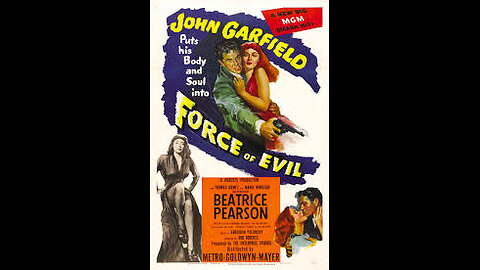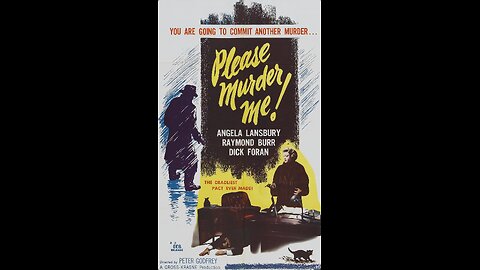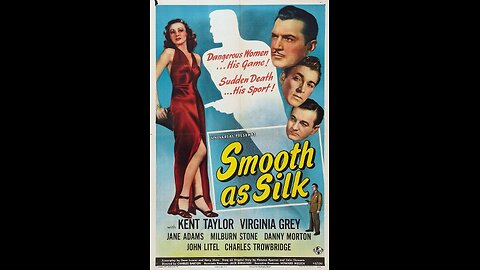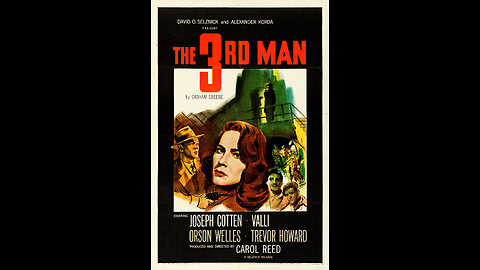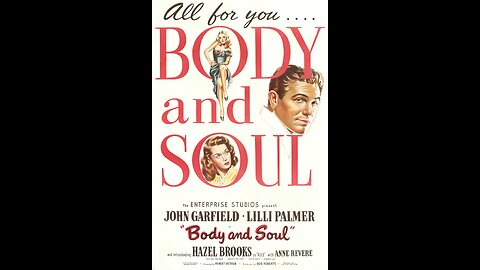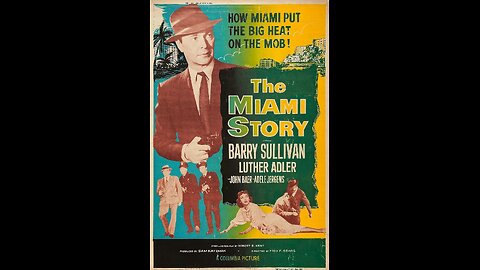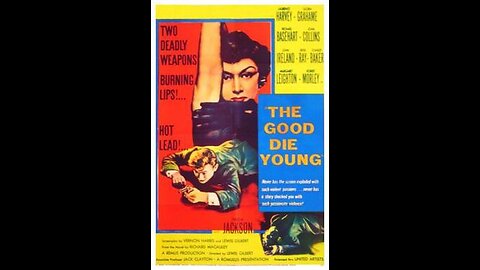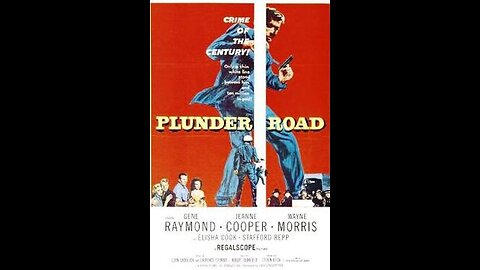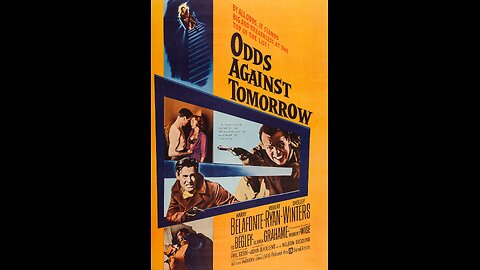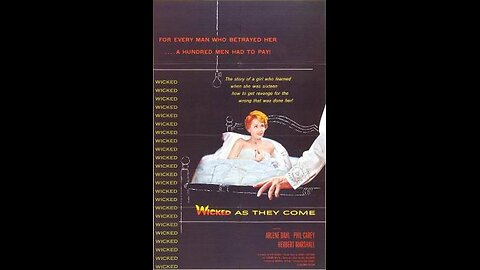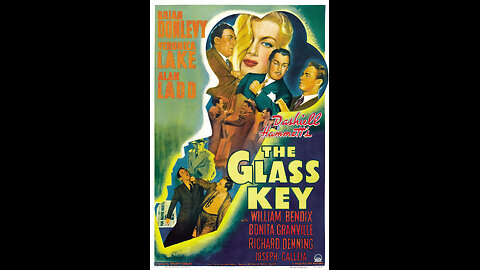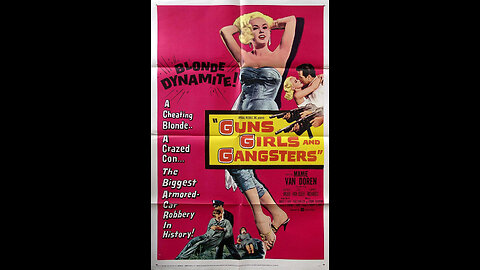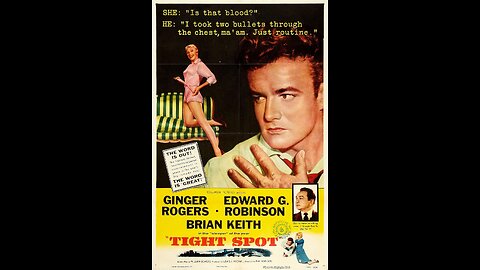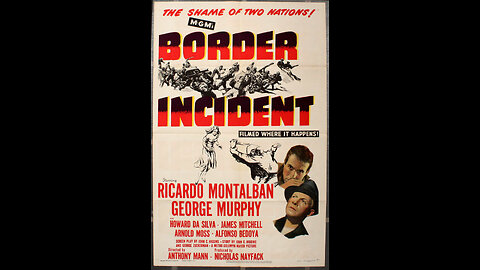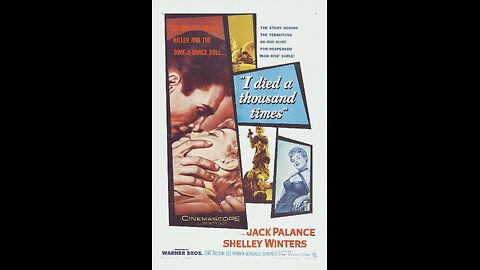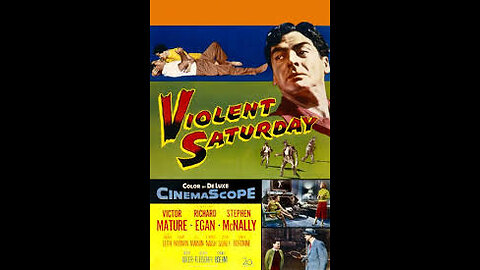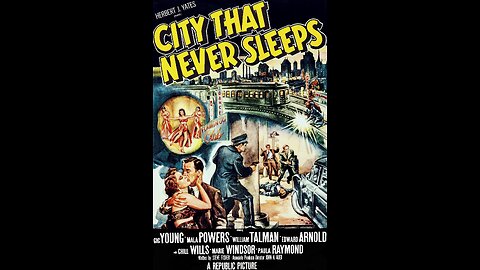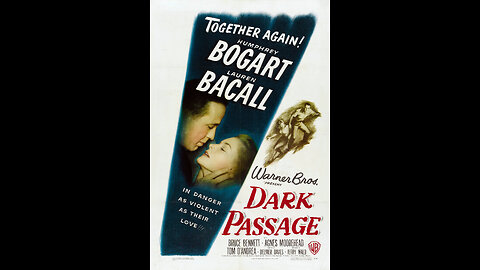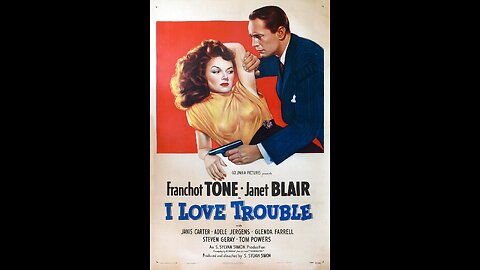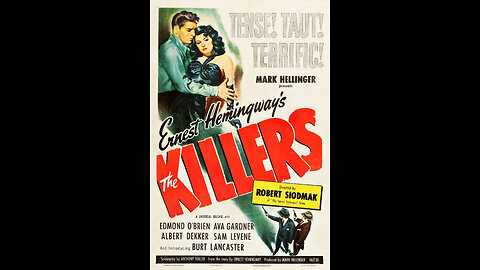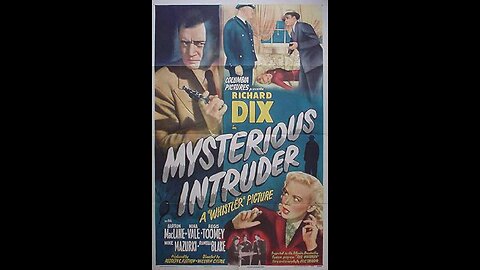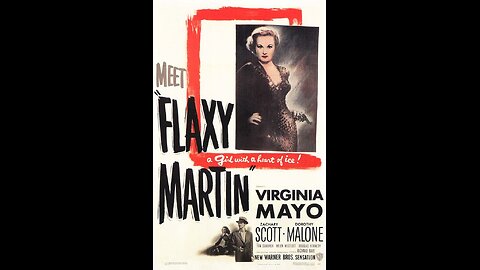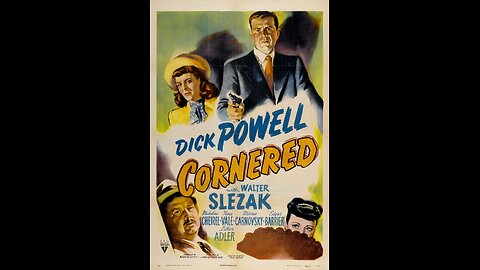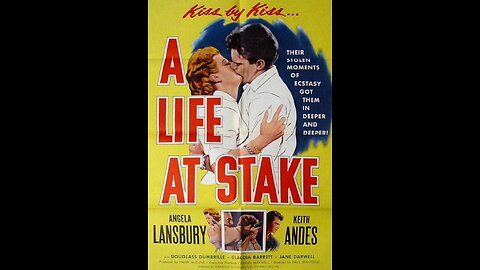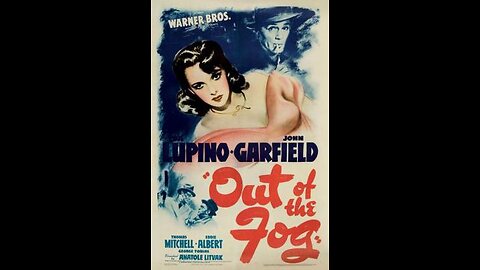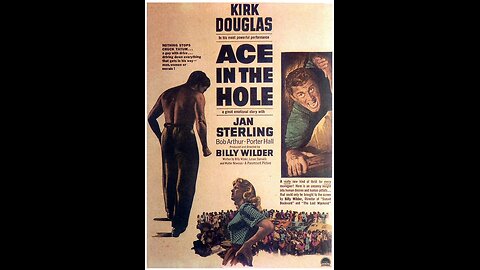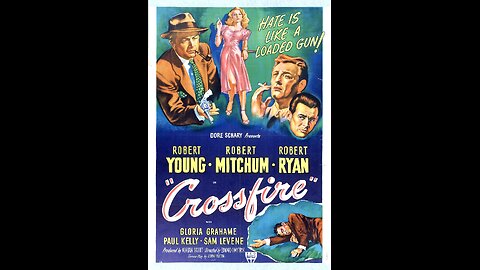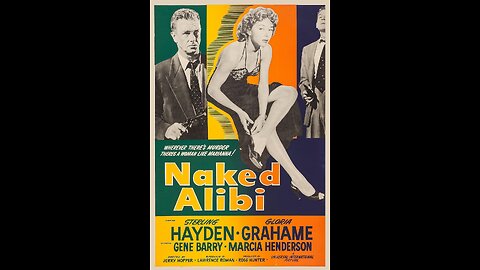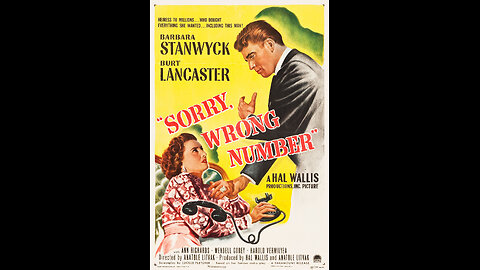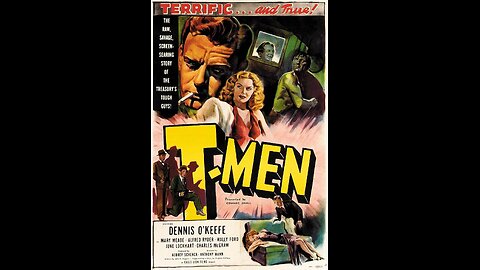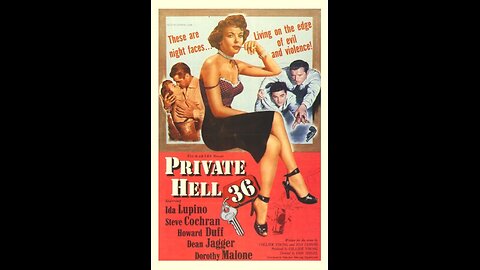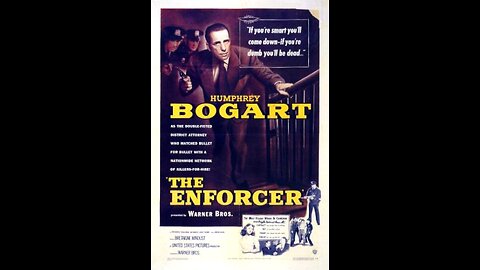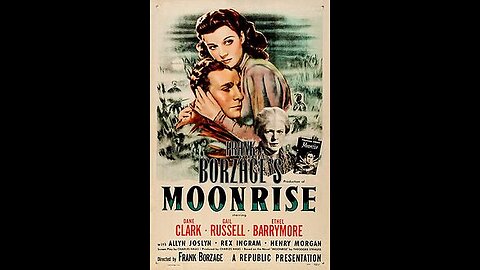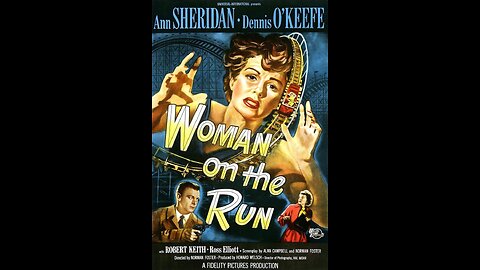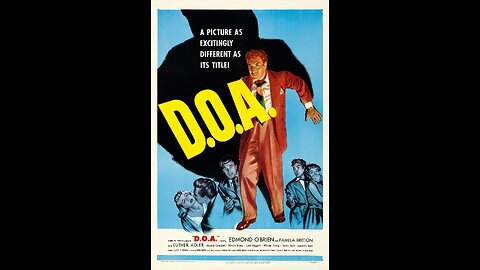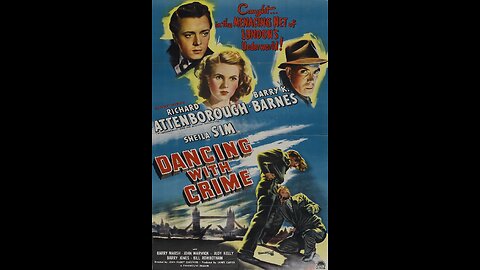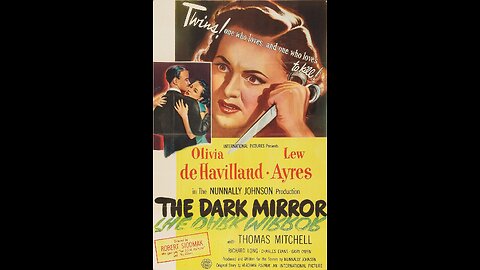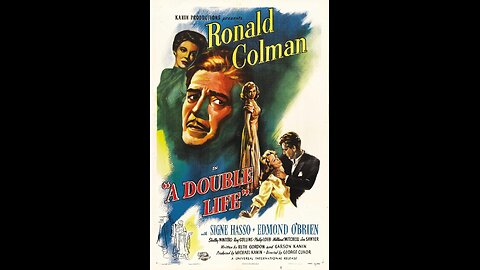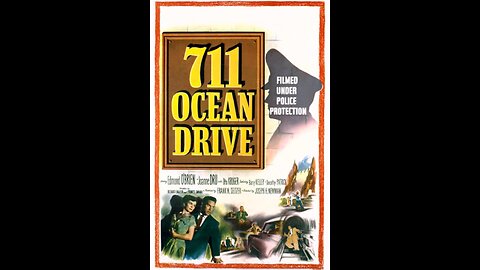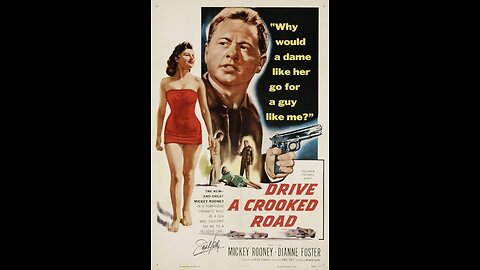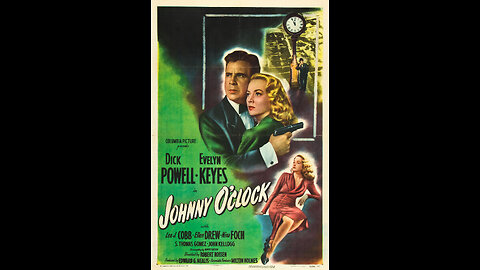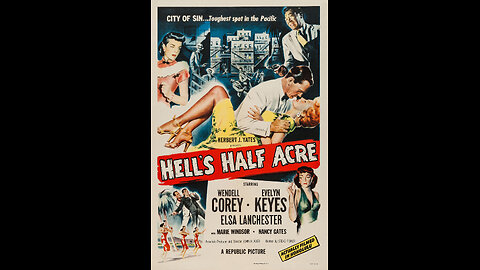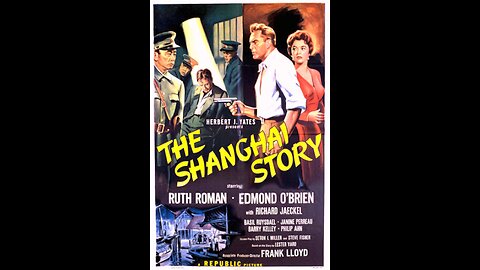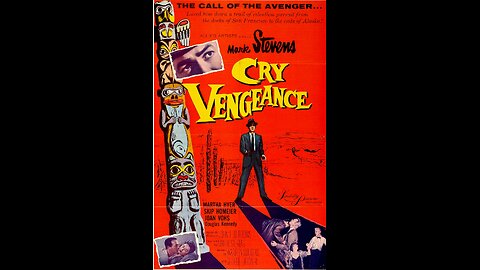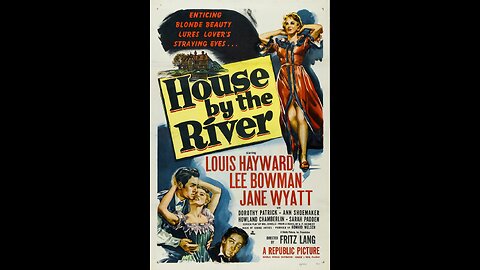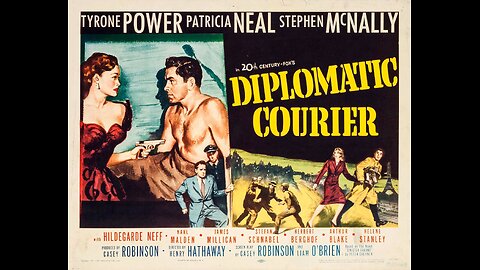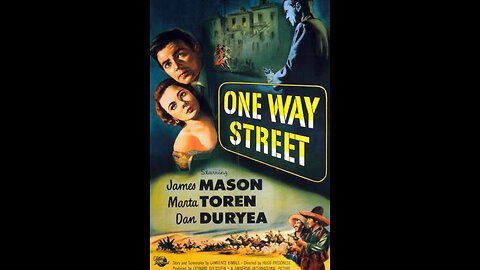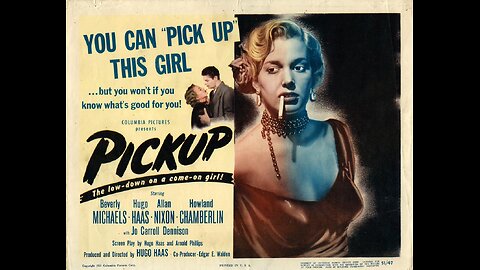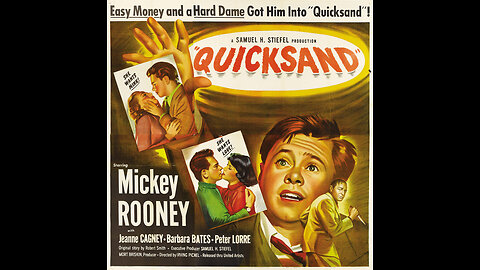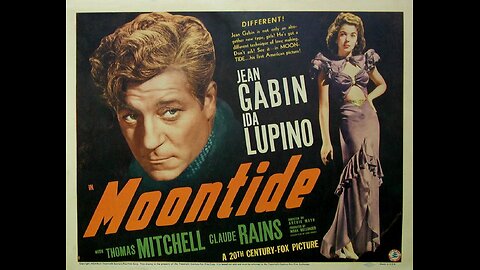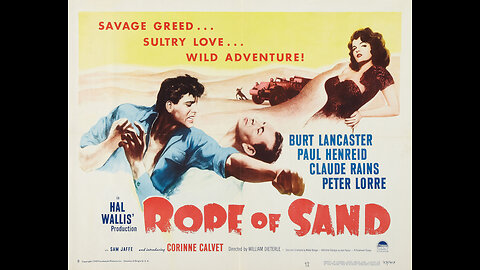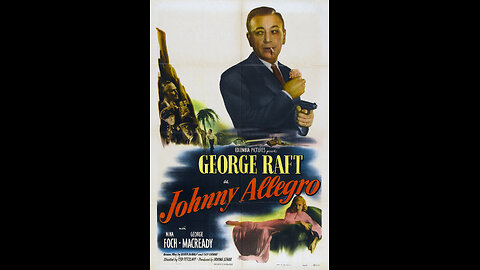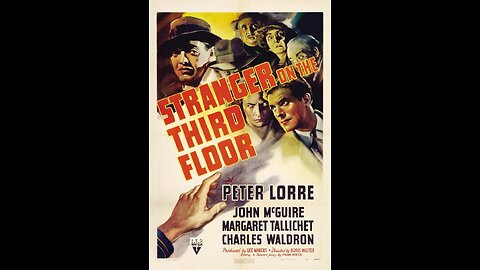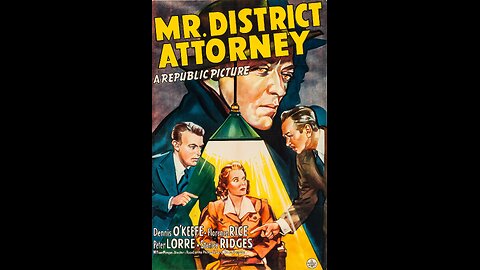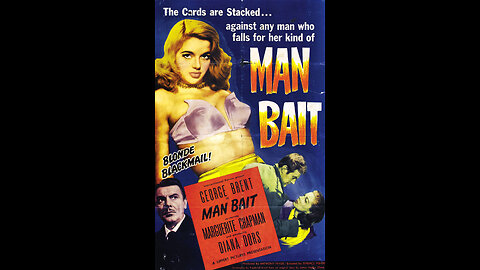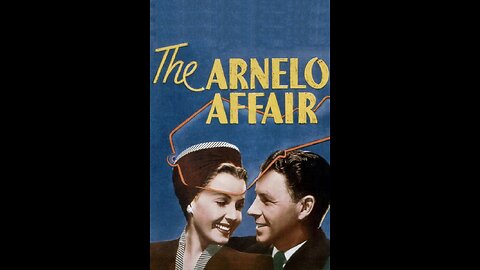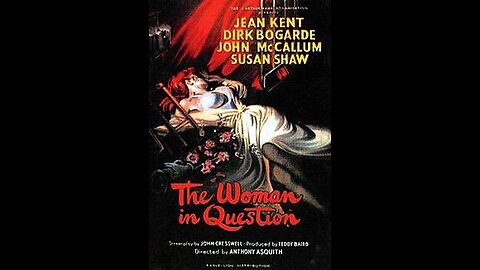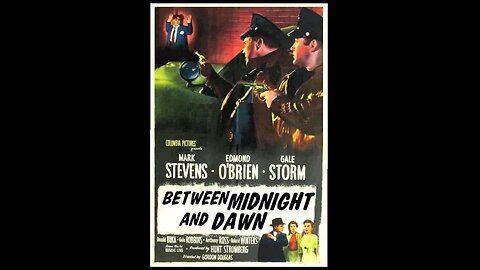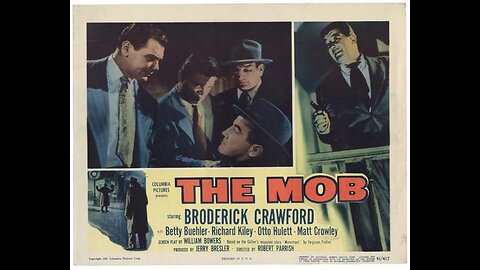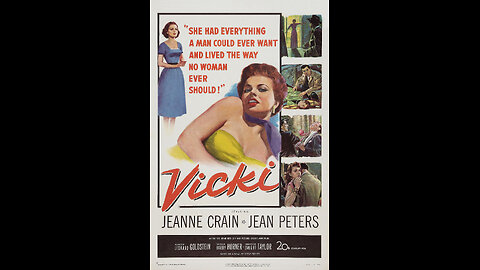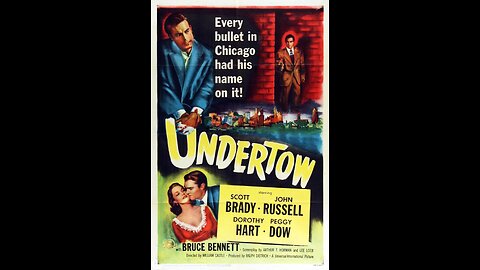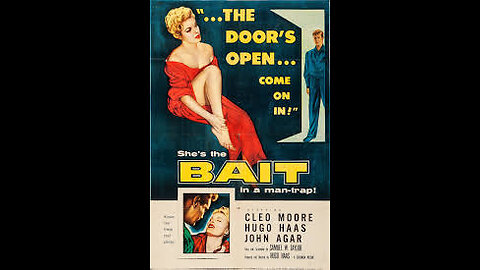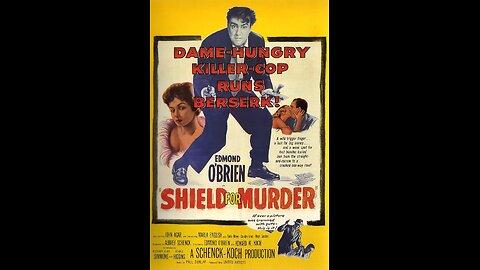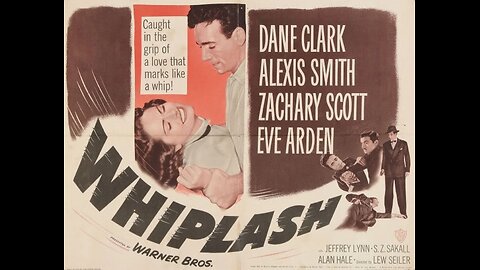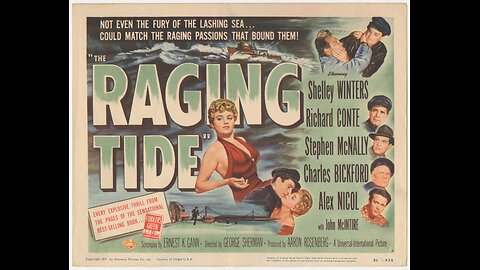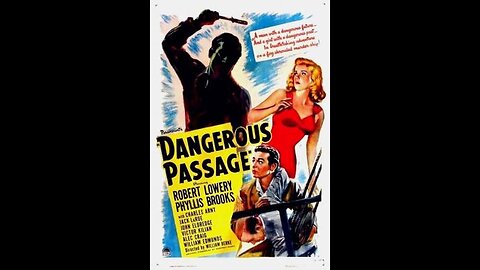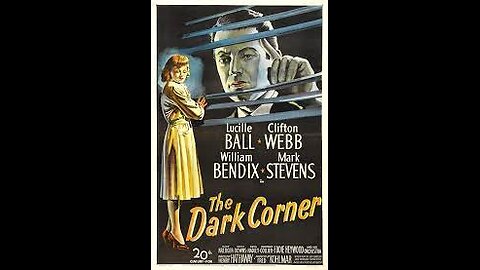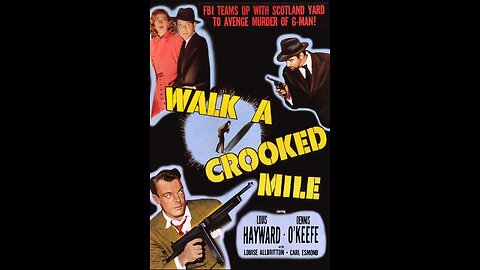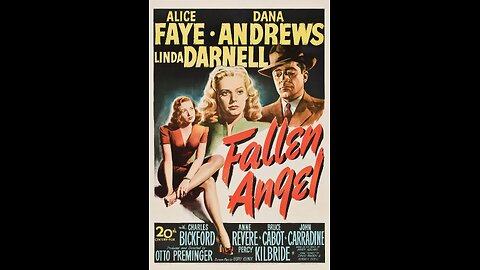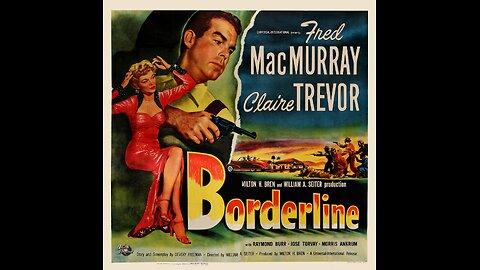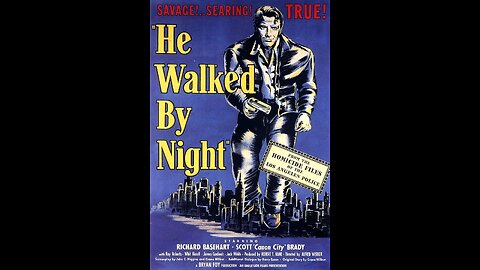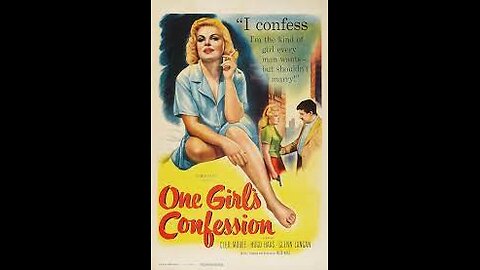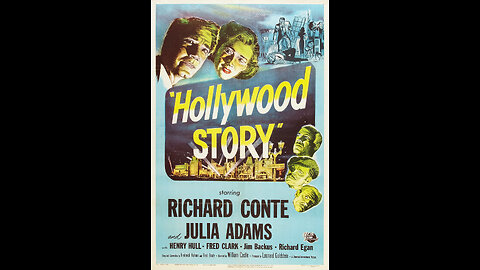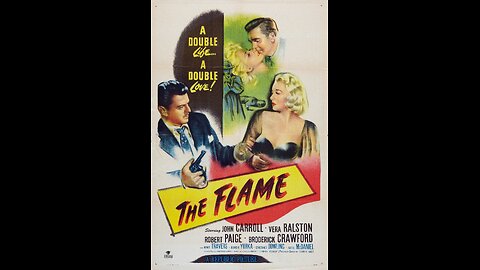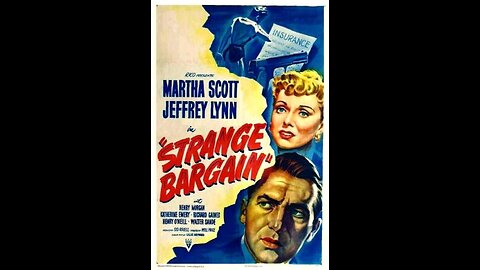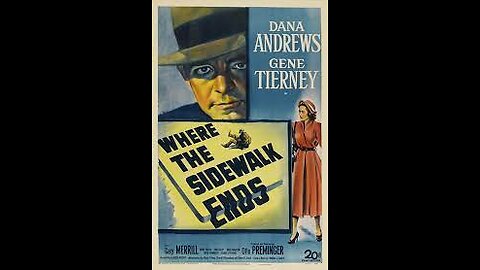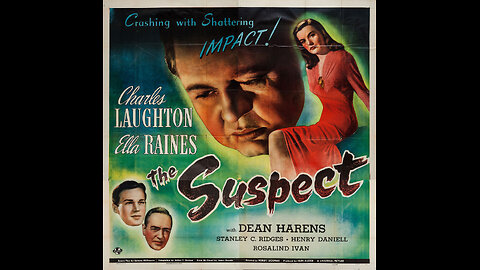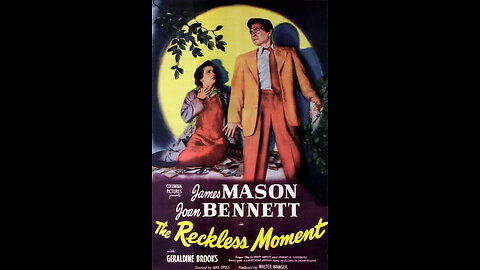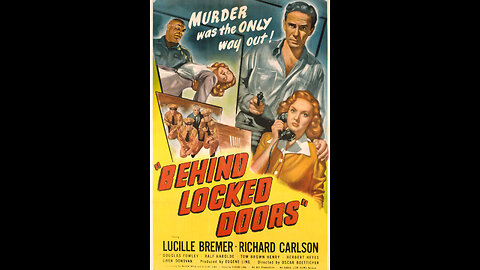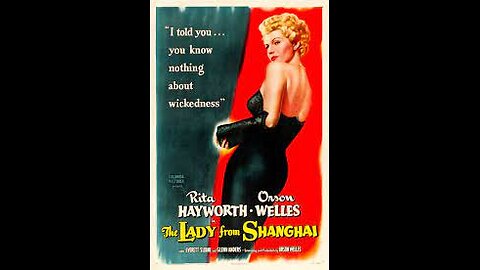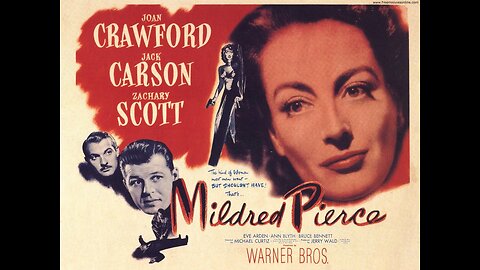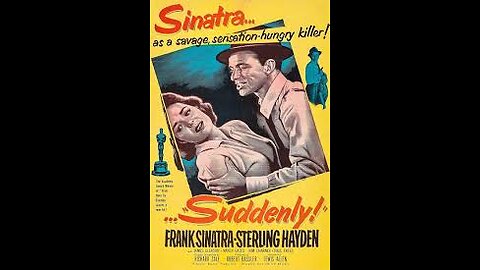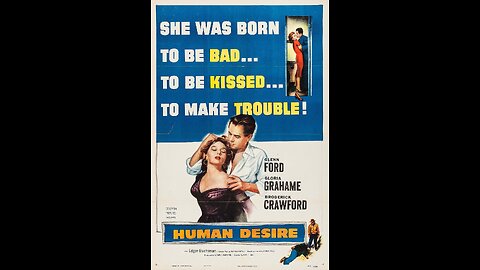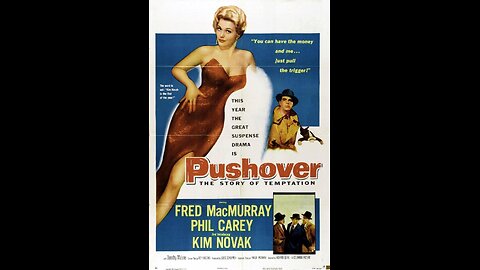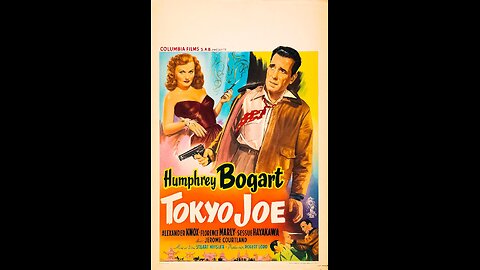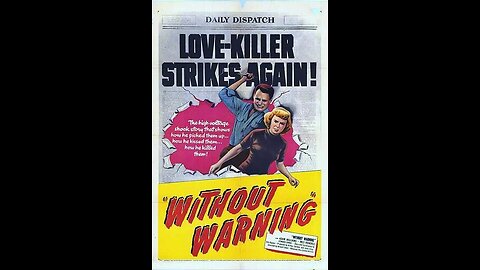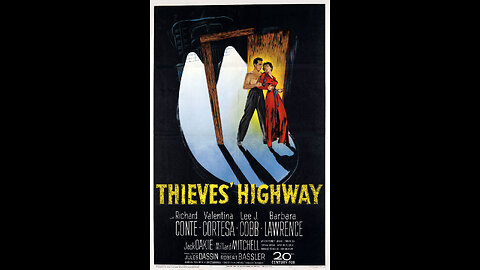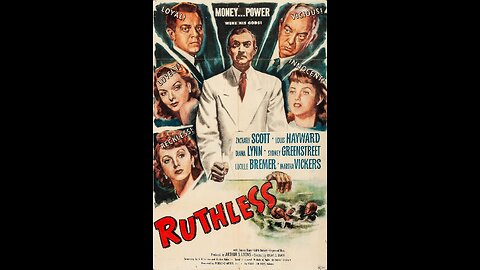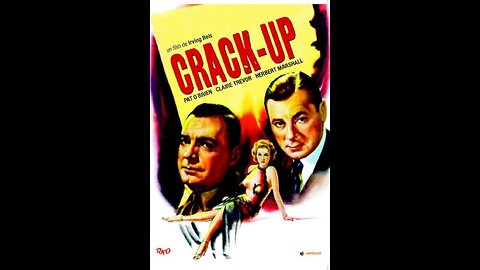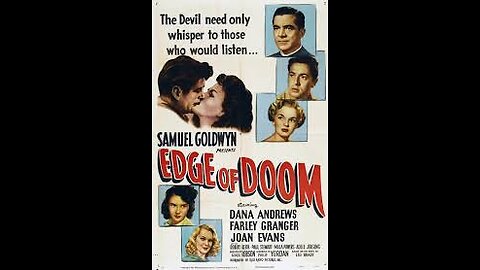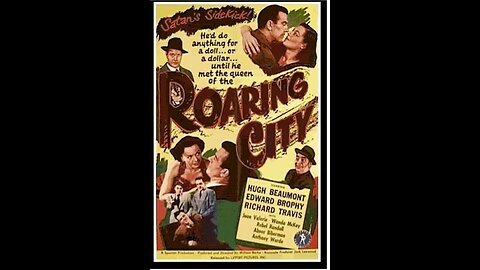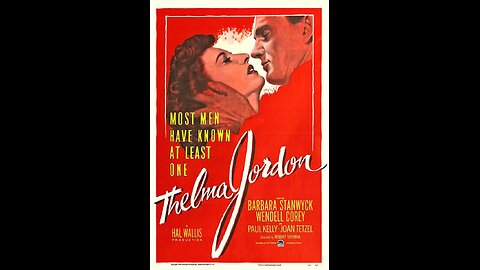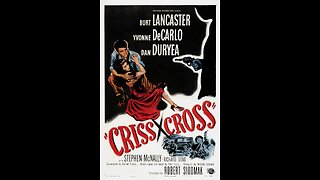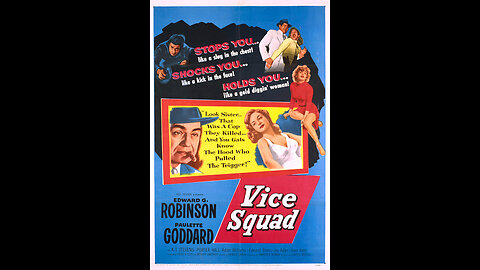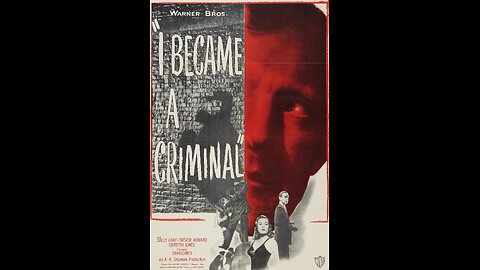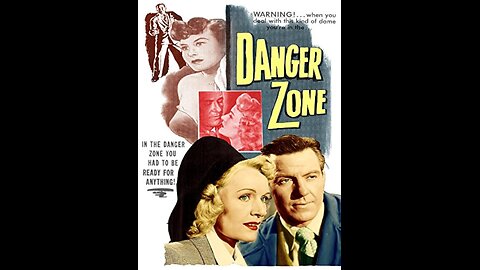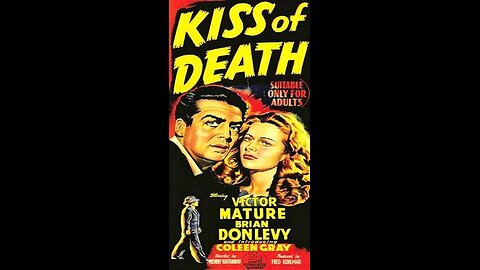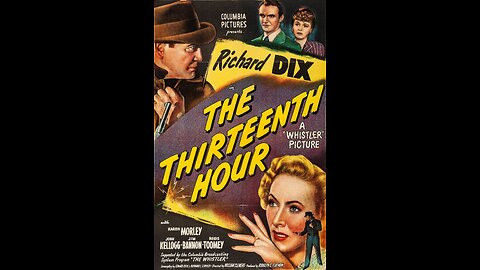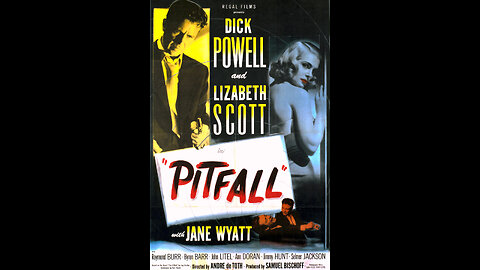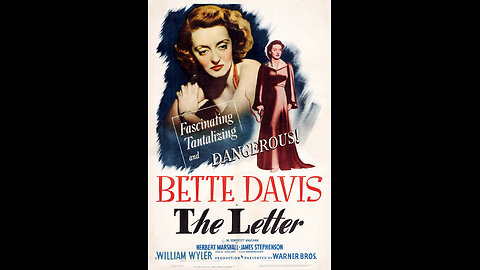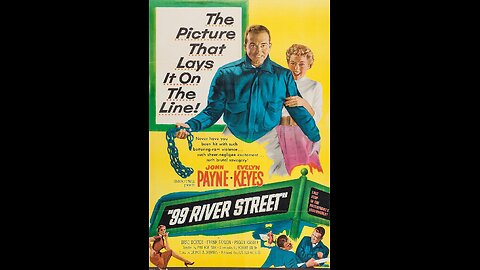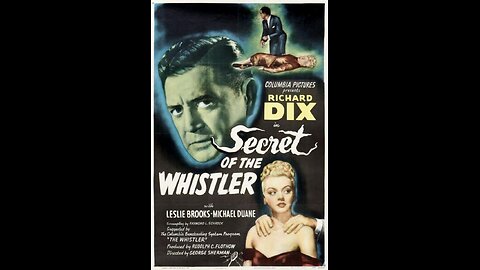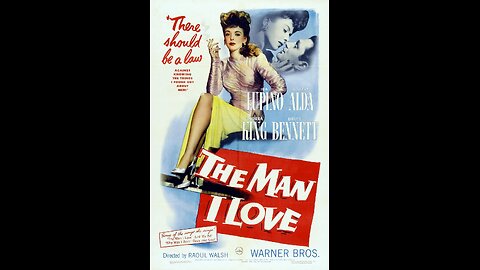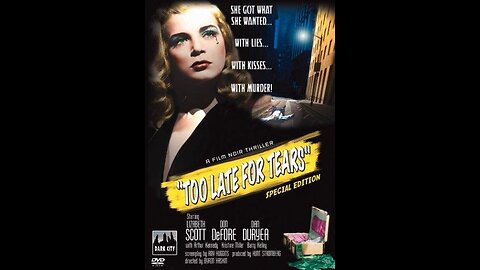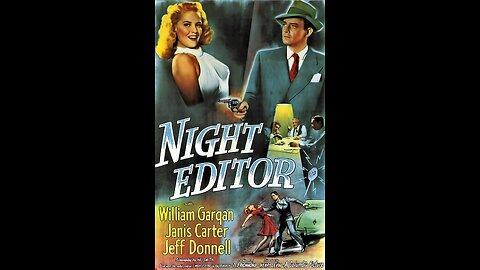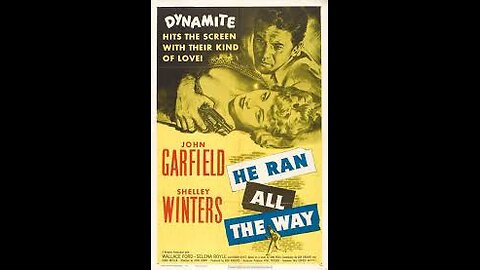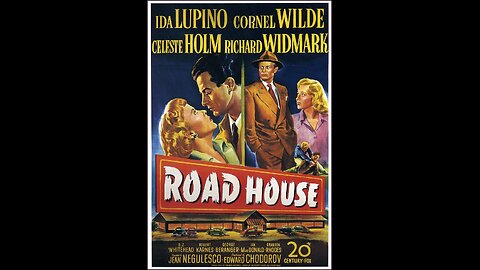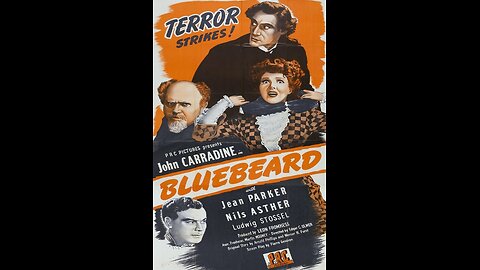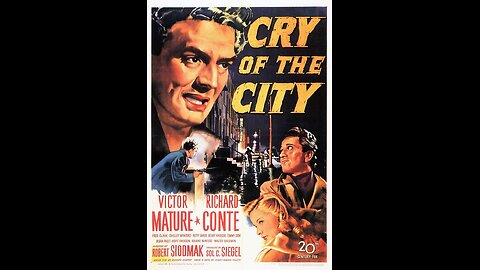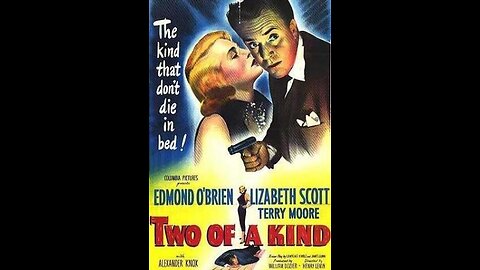Premium Only Content
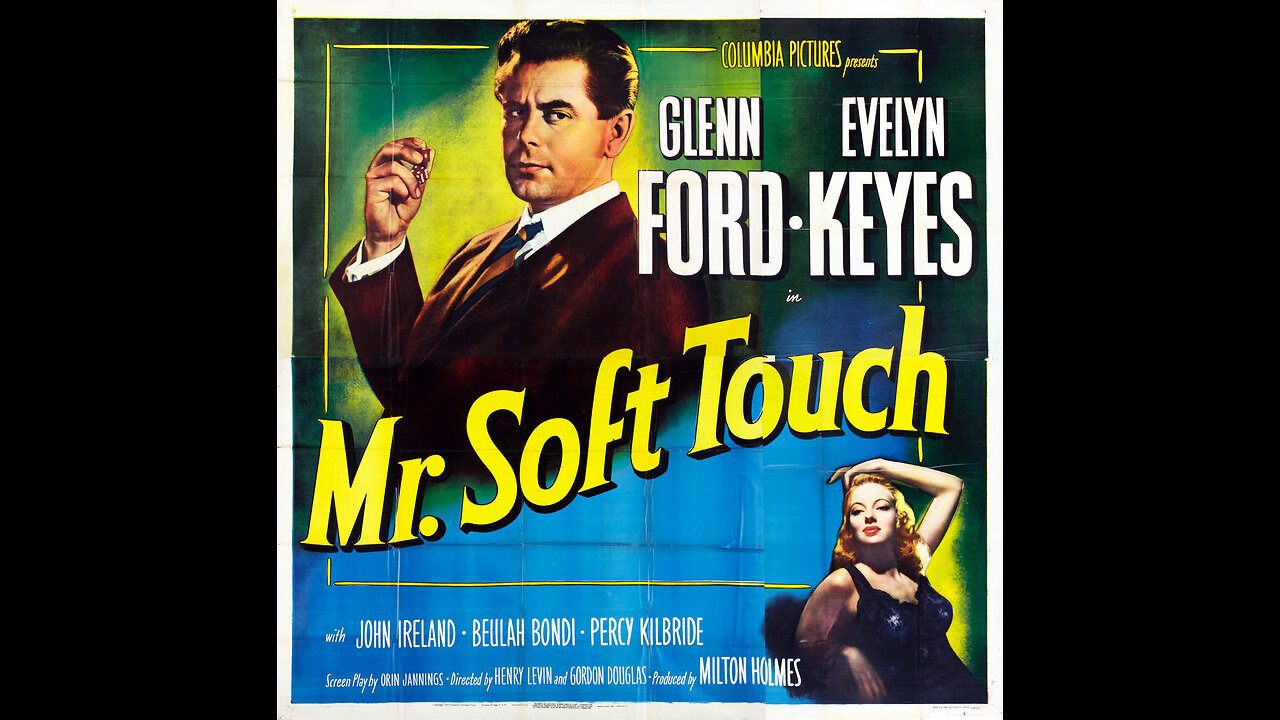
Force of Evil (1948) | Directed by Abraham Polonsky
Please Murder Me (1956) | Directed by Peter Godfrey
Smooth as Silk (1946) | Directed by Charles Barton
The Third Man (1949) | Directed by Carol Reed
Body and Soul (1947) | Directed by Robert Rossen
The Miami Story (1954) | Directed by Fred F. Sears
The Good Die Young (1957) | Directed by Lewis Gilbert
Plunder Road (1957) | Directed by Hubert Cornfield
Odds Against Tomorrow (1959) | Directed by Robert Wise
Wicked as They Come (1956) | Directed by Ken Hughes
The Glass Key (1942) | Directed by Stuart Heisler
Guns Girls and Gangsters (1959) | Directed by Edward L. Cahn
Tight Spot (1955) | Directed by Phil Karlson
Border Incident (1949) | Directed by Anthony Mann
I Died a Thousand Times (1955) | Directed by Stuart Heisler
Violent Saturday (1955) | Directed by Richard Fleischer
Gilda (1946) | Directed by Charles Vidor
The City That Never Sleeps (1953) | Directed by John H. Auer
Dark Passage (1947) | Directed by Delmer Daves
I Love Trouble (1948) | Directed by S. Sylvan Simon
The Killers (1946) | Directed by Robert Siodmak
Mysterious Intruder (1946) | Directed by William Castle
Flaxy Martin (1949) | Directed by Richard L. Bare
Cornered (1945) | Directed by Edward Dmytryk
A Life at Stake (1954) | Directed by Paul Guilfoyle
Nora Prentiss (1947) | Directed by Vincent Sherman
Out of the Fog (1941) | Directed by Anatole Litvak
Ace in the Hole (1951) | Directed by Billy Wilder
Crossfire (1947) | Directed by Edward Dmytryk
Naked Alibi (1954) | Directed by Jerry Hopper
Sorry, Wrong Number (1948)| Directed by Anatole Litvak
T-Men (1947) | Directed by Anthony Mann
The Blue Gardenia (1953) | Directed by Fritz Lang
Private Hell 36 (1954) | Directed by Don Siegel
The Enforcer (1951) | Directed by Bretaigne Windust
Moonrise (1948) | Directed by Frank Borzage
Woman on the Run (1950) | Directed by Norman Foster
D.O.A. (1950) | Directed by Rudolph Maté
Dancing with Crime (1947) | Directed by John Paddy Carstairs
The Dark Mirror (1946) | Directed by Robert Siodmak
A Double Life (1947) | Directed by George Cukor
711 Ocean Drive (1950) | Directed by Joseph M. Newman
Drive a Crooked Road (1954) | Directed by Richard Quine
Johnny O'Clock (1947) | Directed by Robert Rossen
Hell's Half Acre (1954) | Directed by John H. Auer
The Shanghai Story (1954) | Directed by Frank Lloyd
Cry Vengeance (1954) | Directed by Mark Stevens
The Clouded Yellow (1950) | British film noir thriller directed by Ralph Thomas
The House by the River (1950) | Film Noir directed by Fritz Lang
Outside the Wall (1950) | directed by Crane Wilbur
Diplomatic Courier (1952) | American film noir directed by Henry Hathaway
One Way Street (1950) | Film noir crime drama directed by Hugo Fregonese
Pickup (1951) | Film noir directed by Hugo Haas
Quicksand (1950) | Film noir directed by Irving Pichel
Moontide (1942) | Film noir drama directed by Archie Mayo
House of Strangers (1949) | Directed by Joseph L. Mankiewicz
Rope of Sand (1949) | A classic film noir directed by William Dieterle
The Strange Love of Martha Ivers (1946) | A classic film noir directed by Lewis Milestone
Johnny Allegro (1949) | A film noir crime thriller directed by Ted Tetzlaff
Somewhere in the Night (1946) | film noir directed by Joseph L. Mankiewicz
Framed (1947) | A film noir directed by Richard Wallace
Key Witness (1947) | A film noir directed by D. Ross Lederman
Whirlpool (1950) | Film noir directed by Otto Preminger
Stranger on the Third Floor (1940) | Directed by Boris Ingster
Mr. District Attorney (1947) | Directed by Robert B. Sinclair
Man Bait (1952) | Directed by Terence Fisher
The Arnelo Affair (1947) | Directed by Arch Oboler
The Woman in Question (1950) | Directed by Anthony Asquith
The Stranger (1946) | American film noir directed by Orson Welles
Between Midnight and Dawn (1950) | American crime drama film noir directed by Gordon Douglas
The House on Telegraph Hill (1951) | American film noir directed by Robert Wise
The Mob (1951) | A film noir directed by Robert Parrish
The Ring (1952) | American film noir directed by Kurt Neumann
Vicki (1953) | American film noir directed by Harry Horner
Undertow (1949) | Directed by William Castle
Bait (1954) Directed by Hugo Haas
Shield for Murder (1954) | Directed by Edmond O'Brien and Howard W. Koch
Whiplash (1948) | Directed by Lewis Seiler
Island of Doomed Men (1940) | American film noir crime thriller directed by Charles Barton
The Raging Tide (1951) | A film noir crime drama directed by George Sherman.
The Crooked Way (1949) | A film noir directed by Robert Florey
The Strange Woman (1946) | Directed by Edgar G. Ulmer
Larceny (1948) | A film noir directed by George Sherman
Impact (1949) | Directed by Arthur Lubin
Dangerous Passage (1944) | A suspenseful film noir directed by William Berke
The Hitch-Hiker (1953) | Directed by Ida Lupino
The Dark Corner (1946) | Directed by Henry Hathaway
Walk a Crooked Mile (1948) | A film noir directed by Gordon Douglas
Pickup on South Street (1953) | Directed by Samuel Fuller
Fallen Angel (1945) | Directed by Otto Preminger
Borderline (1950) | Directed by William A. Seiter
The Chase (1946) | Directed by Arthur Ripley
He Walked by Night (1948) | A gripping film noir directed by Alfred L. Werker
Temptation (1946) | Directed by Irving Pichel
One Girl's Confession (1953) | Directed by Hugo Haas
Hollywood Story (1951) | Directed by William Castle
Black Angel (1946) | A film noir directed by Roy William Neill
Strange Impersonation (1945) | Directed by Anthony Mann
The Flame (1947) | Directed by John H. Auer
Strange Bargain (1949) | A film noir directed by Will Price
Mr. Soft Touch (1949) | Directed by Gordon Douglas and Henry Levin
Leave Her to Heaven (1945) | Directed by John M. Stahl
Deported (1950) | Directed by Robert Siodmak
Where the Sidewalk Ends (1950) | Directed by Otto Preminger
Born to Kill (1947) | Directed by Robert Wise
Double Indemnity (1944) | Directed by Billy Wilder
The Suspect (1944) | Directed by Robert Siodmak
The Reckless Moment (1949) | Directed by Max Ophüls
Kansas City Confidential (1952) | Directed by Phil Karlson
Behind Locked Doors (1948) | Directed by Oscar Boetticher Jr.
Boomerang (1947) | Directed by Elia Kazan
The Lady from Shanghai (1947) | Directed by Orson Welles
Out of the Past (1947) | Directed by Jacques Tourneur
Mildred Pierce (1945) | Directed by Michael Curtiz
Behind Green Lights (1946) | Directed by Otto Brower
Suddenly (1954) | Directed by Lewis Allen
Human Desire (1954) | Directed by Fritz Lang
Pushover (1954) | Directed by Richard Quine
Tokyo Joe (1949) | Directed by Stuart Heisler
Without Warning (1952) | Directed by Arnold Laven
Brute Force (1947) | Directed by Jules Dassin
Wicked Woman (1953) | Directed by Russell Rouse
I Was a Shoplifter (1950) | A film noir crime drama directed by Charles Lamont
Blood on the Sun (1945) | A film noir and war drama directed by Frank Lloyd
The Long Memory (1953) | Directed by Robert Hamer
Thieves' Highway (1949) | Directed by Jules Dassin
Ruthless (1948) | Directed by Edgar G. Ulmer
Crack-Up (1946) | Directed by Irving Reis
Edge of Doom (1950) | Directed by Mark Robson
Roaring City (1951) | Directed by William Berke
The File on Thelma Jordan (1950) | Directed by Robert Siodmak
Criss Cross (1949) | Directed by Robert Siodmak
I Wake Up Screaming (1941) | Directed by H. Bruce Humberstone
Breakdown (1952) | Directed by Edmond Angelo
Detour (1945) | Directed by Edgar G. Ulmer
Vice Squad (1953) | Directed by Arnold Laven
Stage Fright (1950) | Directed by Alfred Hitchcock
I Became a Criminal (1947) | Directed by Alberto Cavalcanti
The Prowler (1951) | Directed by Joseph Losey
Danger Zone (1951) | Directed by William Berke
The Second Woman (1950) | Directed by James V. Kern
Kiss of Death (1947) | Directed by Henry Hathaway
The Thirteenth Hour (1947) | Directed by William Clemens
Pitfall (1948) | Directed by André de Toth
The Letter (1940) | Directed by William Wyler
Moss Rose (1947) | Directed by Gregory Ratoff
99 River Street (1953) | Directed by Phil Karlson
The Secret of the Whistler (1946) | Directed by George Sherman
The Man I Love (1946) | Directed by Raoul Walsh
Pursued (1947) | Directed by Raoul Walsh
Too Late for Tears (1949) | Directed by Byron Haskin
Scarlet Street (1945) | Directed by Fritz Lang
Blonde Ice (1948) | Directed by Jack Bernhard
Never Trust a Gambler (1951) | Directed by Ralph Murphy
Night Editor (1946) | Directed by Henry Levin
He Ran All the Way (1951) | Directed by John Berry
So Dark the Night (1946) | Directed by Joseph H. Lewis
Road House (1948) | Directed by Jean Negulesco
Treasure of Monte Cristo (1949) | Directed by William Berke
Port of New York (1949) | Directed by László Benedek
The Amazing Mr. X / The Spiritualist (1948) | Directed by Bernard Vorhaus
Sleep, My Love (1948) | Directed by Douglas Sirk
A Night of Adventure (1944) | Directed by Gordon Douglas
Bluebeard (1944) | Directed by Edgar G. Ulmer
The Whistler (1944) | Directed by William Castle
Cry of the City (1948) | Directed by Robert Siodmak
Two of a Kind (1951) | Directed by Henry Levin
Cover Up (1949) | Directed by Alfred E. Green
Mr. Soft Touch (1949) | Directed by Gordon Douglas and Henry Levin
"Mr. Soft Touch" is a 1949 film noir directed by Gordon Douglas and Henry Levin. Starring Glenn Ford and Evelyn Keyes, the film is a unique blend of crime, drama, and comedy.
The film follows Joe Miracle (Glenn Ford), a war veteran who runs a small but struggling charity in post-World War II San Francisco. Facing pressure from the mob to use his charity for illegal activities, Joe decides to take a stand and refuses their demands. In doing so, he becomes a fugitive, seeking refuge in a settlement house run by Jenny Jones (Evelyn Keyes).
As Joe navigates his new life on the run, he becomes involved in a heist that could provide the funds needed to save his charity. However, complications arise, and Joe finds himself torn between doing what is right and succumbing to the criminal underworld.
**Characterization and Performances:**
Glenn Ford delivers a compelling performance as Joe Miracle, portraying the complexity of his character — a man with a troubled past striving to do good. Evelyn Keyes provides a strong counterpart as Jenny Jones, an idealistic woman committed to helping those in need. The chemistry between the two leads adds depth to the film's emotional core.
"Mr. Soft Touch" is notable for its genre-bending approach. It seamlessly blends elements of film noir, crime drama, and comedy. The film transitions between moments of tension and humor, creating a unique and engaging viewing experience. This genre fusion sets it apart from many traditional film noirs of the era.
The cinematography, helmed by Burnett Guffey, captures the post-war atmosphere effectively. The use of shadow and light in certain scenes reflects classic film noir aesthetics, while other sequences embrace a more lighthearted and comedic tone. The visual contrast contributes to the film's tonal shifts.
"Mr. Soft Touch" incorporates elements of social commentary, exploring the challenges faced by war veterans reintegrating into society. Joe's struggles and the portrayal of the post-war urban environment highlight the difficulties of adjusting to civilian life after military service. The film also touches on themes of redemption and the consequences of one's past actions.
The film maintains a brisk pace, blending suspenseful moments with humor and character-driven scenes. The screenplay, co-written by Milton Holmes and Leo Katcher, navigates the tonal shifts effectively, ensuring that the narrative flows smoothly. The dialogue is sharp, and the script succeeds in keeping the audience invested in Joe's journey.
The music, composed by Frank Skinner, complements the film's varied tone. It adapts to the shifting moods, enhancing the emotional impact of key scenes. The soundtrack contributes to the overall atmosphere of the film, whether it be in moments of tension or lighter comedic sequences.
While "Mr. Soft Touch" may not be as widely celebrated as some other films from the film noir era, it stands out for its unique approach to genre blending. Its exploration of post-war themes and its memorable characters contribute to its enduring appeal among cinephiles.
"Mr. Soft Touch" is a noteworthy entry in the film noir genre, offering a distinctive blend of crime, drama, and comedy. The film's successful fusion of genres, coupled with strong performances from Glenn Ford and Evelyn Keyes, makes it an engaging and memorable cinematic experience. While it may not have achieved the same level of recognition as some classic film noirs, its uniqueness and the exploration of post-war themes contribute to its status as a hidden gem worth discovering.
-
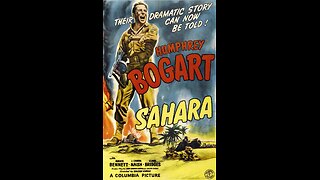 1:37:59
1:37:59
Classic Films & Movies Archive
5 days agoSahara (1943) | Directed by Zoltan Korda
1122 -
 7:04:33
7:04:33
MetatronGaming
1 day agoSOMA - FULL GAME - Metatron Plays
3.63K -
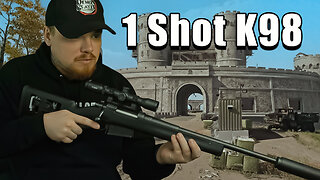 20:27
20:27
GritsGG
14 hours agoDominated w/ Broken Guns! 1 Shot Anywhere K98!
4.24K -
 18:11
18:11
The Pascal Show
1 day ago $2.04 earned'ERIKA IS LYING?' Candace Owens Claps Back At Erika Kirk Claims Charlie's Shocking Text Isn't True
5.1K13 -
 23:26
23:26
MetatronHistory
2 days agois The Armchair Historian Legit?
16.7K1 -
 1:08:29
1:08:29
omarelattar
19 hours agoThe BioHacking Experts: “How We Lost 150lbs, Healed Naturally & Reversed Aging in 9 Months!”
5.51K3 -
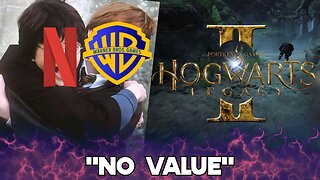 8:05
8:05
Blabbering Collector
3 days agoNetflix Doesn’t Care About Hogwarts Legacy 2
21.2K6 -
 9:28
9:28
ThatStarWarsGirl
1 day agoSupergirl Trailer REACTION!
13.3K2 -
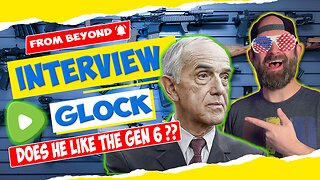 3:35:36
3:35:36
Tundra Tactical
9 hours ago $16.93 earnedWe Interview Gaston Glock From Beyond The Grave And Ask Him About The Gen 6
143K3 -
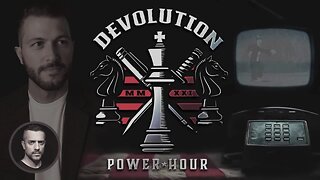 2:36:55
2:36:55
Badlands Media
23 hours agoDevolution Power Hour Ep. 415 – Byrne’s Confession, Psyop Fallout & the Cost of Discernment
110K44
